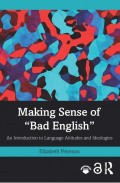
Making sense of "bad English" :an introduction to language attitudes and ideo…
Why is it that some ways of using English are considered "good" and others are considered "bad"? Why are certain forms of language termed elegant, eloquent or refined, whereas others are deemed une…
- Edisi
- -
- ISBN/ISSN
- 9781138237469
- Deskripsi Fisik
- xxiv, 166p. : ill.
- Judul Seri
- -
- No. Panggil
- 427 PET m
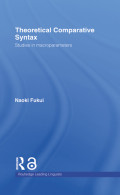
Theoretical comparative syntax :studies in macroparameters
Collected for the first time in a single volume, these essays and articles by Naoki Fukui form an outline of some of the most significant and formative contributions to syntactic theory. Focusing p…
- Edisi
- -
- ISBN/ISSN
- 9780203479179
- Deskripsi Fisik
- ix, 422p. : ill.
- Judul Seri
- -
- No. Panggil
- 415 FUK t
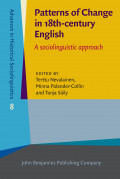
Patterns of change in 18th-century English :a sociolinguistic approach
Eighteenth-century English is often associated with normative grammar. But to what extent did prescriptivism impact ongoing processes of linguistic change? The authors of this volume examine a vari…
- Edisi
- -
- ISBN/ISSN
- 9789027263834
- Deskripsi Fisik
- xi. 311p. : ill.
- Judul Seri
- -
- No. Panggil
- 427.009033 PAT p
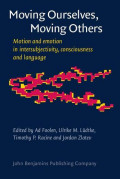
Moving ourselves, moving others :motion and emotion in intersubjectivity, con…
The close relationship between motion (bodily movement) and emotion (feelings) is not an etymological coincidence. While moving ourselves, we move others; in observing others move – we are moved …
- Edisi
- -
- ISBN/ISSN
- 9789027241566
- Deskripsi Fisik
- viii, 492p. : ill.
- Judul Seri
- -
- No. Panggil
- 401 MOV m
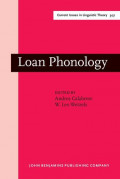
Loan phonology
For many different reasons, speakers borrow words from other languages to fill gaps in their own lexical inventory. The past ten years have been characterized by a great interest among phonologists…
- Edisi
- -
- ISBN/ISSN
- 9789027288967
- Deskripsi Fisik
- vii, 273p. : ill.
- Judul Seri
- -
- No. Panggil
- 414 LOA l
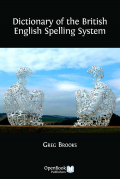
Dictionary of the British English Spelling System
This book will tell all you need to know about British English spelling. It's a referente work intended for anyone interested in the English language, especially those who teach it, whatever the ag…
- Edisi
- -
- ISBN/ISSN
- 9782821876279
- Deskripsi Fisik
- XXX, 492 p.
- Judul Seri
- -
- No. Panggil
- 421.52 BRO d
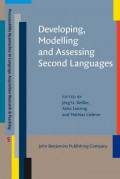
Developing, modelling and assessing second languages
This edited volume brings together the work of a number of researchers working in the framework of Processability Theory (PT), a psycholinguistic theory of second language acquisition (SLA) (Pienem…
- Edisi
- -
- ISBN/ISSN
- 9789027267191
- Deskripsi Fisik
- xviii, 244p. : ill.
- Judul Seri
- -
- No. Panggil
- 401.93 DEV d
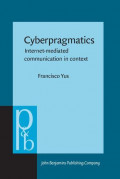
Cyberpragmatics :internet-mediated communication in context
Cyberpragmatics is an analysis of Internet-mediated communication from the perspective of cognitive pragmatics. It addresses a whole range of interactions that can be found on the Net: the web page…
- Edisi
- -
- ISBN/ISSN
- 9789027256195
- Deskripsi Fisik
- xic, 353p. : ill.
- Judul Seri
- -
- No. Panggil
- 401.450285 YUS c
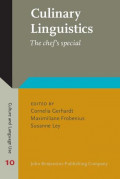
Culinary linguistics :the chef's special
Language and food are universal to humankind. Language accomplishes more than a pure exchange of information, and food caters for more than mere subsistence. Both represent crucial sites for social…
- Edisi
- -
- ISBN/ISSN
- 9789027202932
- Deskripsi Fisik
- xvi, 347p. : ill.
- Judul Seri
- -
- No. Panggil
- 420.147 CUL c
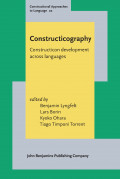
Constructicography :constructicon development across languages
In constructionist theory, a constructicon is an inventory of constructions making up the full set of linguistic units in a language. In applied practice, it is a set of construction descriptions �…
- Edisi
- -
- ISBN/ISSN
- 9789027263865
- Deskripsi Fisik
- viii, 313p. : ill.
- Judul Seri
- -
- No. Panggil
- 415.01836 CON c



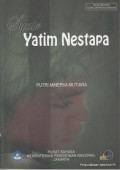
 Karya Umum
Karya Umum  Filsafat
Filsafat  Agama
Agama  Ilmu-ilmu Sosial
Ilmu-ilmu Sosial  Bahasa
Bahasa  Ilmu-ilmu Murni
Ilmu-ilmu Murni  Ilmu-ilmu Terapan
Ilmu-ilmu Terapan  Kesenian, Hiburan, dan Olahraga
Kesenian, Hiburan, dan Olahraga  Kesusastraan
Kesusastraan  Geografi dan Sejarah
Geografi dan Sejarah